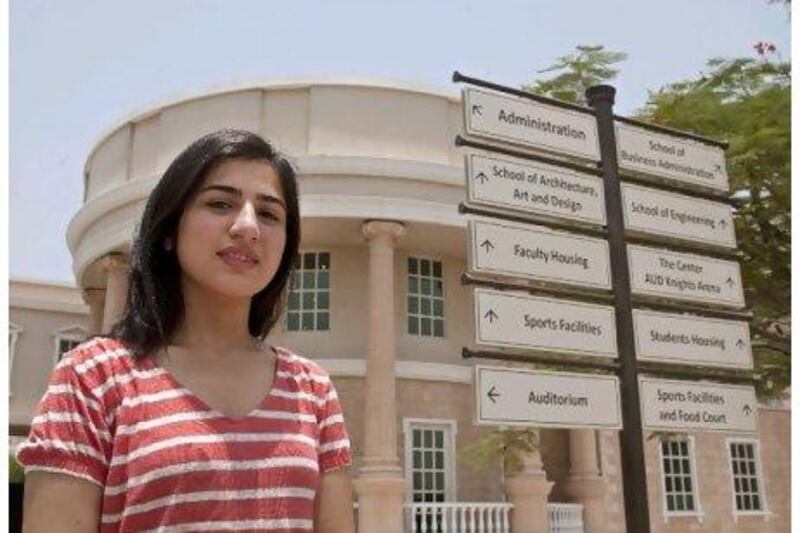AJMAN // A partnership between Karachi University and an education centre in the emirate aims to bring affordable education to lower income Pakistani families.
The Global Learning Centre will offer degrees from September accredited by the Pakistani university for fees of just Dh1,200 a month.
The centre's head, Dr SM Tahir, said in doing so the facility hoped to open up more options for middle and lower income families.
"People are looking for an economic solution for higher education," he said. And many Pakistani families want their children to have a Pakistani qualification as back up in case they return home.
An increasing number of students born and bred in the UAE now preferred not to study in their native home, he said. "They are more comfortable here with the political and social security," he explained.
Amena Shah, 21, was born and raised in Dubai and chose to go to the American University Dubai.
Although her family is Pakistani, she did not consider going to university there.
"I've never spent more than two months in Pakistan, so I really don't connect with people in that country," she said. "My parents know that living in Pakistan would be really difficult. The culture there is so completely different from here."
The Global Learning Centre hopes to open with between 25 and 30 students, and also has 100 scholarships lined up.
Twenty full scholarships will be available, and another 30 will get half their fees paid. A further 50 will get a 40 per cent discount. The scholarships will depend on entrance examination scores.
Dr Tahir admitted that level of support was unlikely to continue, but said it would help the centre build a reputation.
"Hopefully, in time, the Pakistani community will also come forward, like local businesses, offering their support," he said.
Dr Tahir said the Global Learning Centre had saved money by operating new courses from an existing establishment that administers qualifications for institutions such as Leeds Metropolitan University and the Association of Business Executives, both based in the UK.
The fees are lower than at Szabist University in Dubai, a branch campus of the Pakistani university, which charges Dh10,890 a term - nearly Dh3,000 a month.
Szabist is trying to fund more scholarships, and is in talks with potential donors.
"Middle and lower income families definitely struggle to raise the money for fees," said the head of campus, Dr Faiz Ashaq, adding that he hoped extra funding would allow the university to provide discounts of between 25 to 50 per cent, depending on students' means.
"We are working on this as a priority," he said.
Last year, Szabist gave a 25 per cent "recession discount" to all students, but Dr Ashaq said that could not be sustained.
"This year, 20 students will be eligible for scholarships but we are now finalising the details with prominent community members and businesses to find more funding for those others who need it."
The degrees offered in Ajman, in subjects such as commerce and business administration, will be examined and invigilated by Karachi University, but taught by local staff.
However, with the degree courses lasting just two years, they may not be recognised beyond Pakistan, Dr Tahir said.
"In many countries, it may not be considered equal to a bachelor, but in Pakistan, there are two-year and four-year tracks," he said. "Many are now going towards the four-year track but the two-year is still taught."
Szabist University offers only four-year degrees. Dr Ashaq said its qualifications need to be internationally recognised to be of any value.
Most of its students have come from local Pakistani schools, where families are in the lower income bracket.
"Finance is a big problem for the students at these schools," he said. "The families' priority is to have their children earning money. Support is needed if we are to raise the numbers of students at these schools going on to further education."






